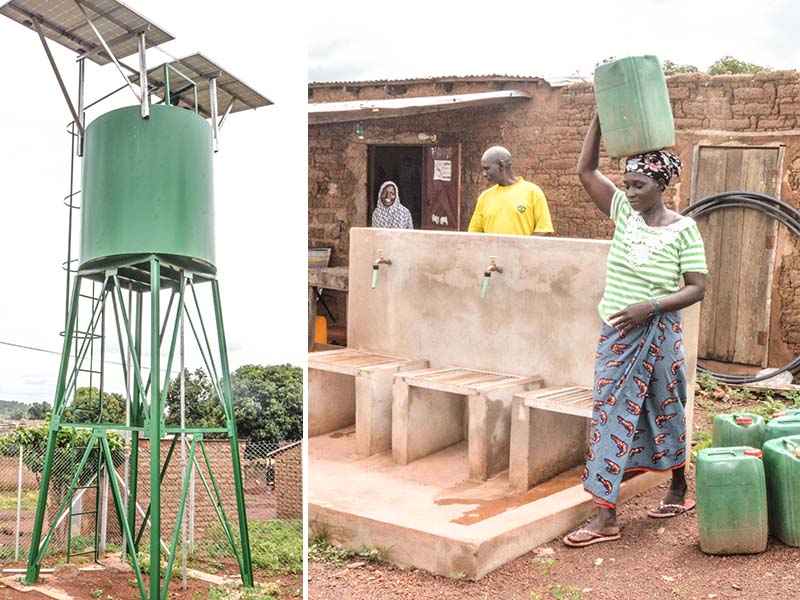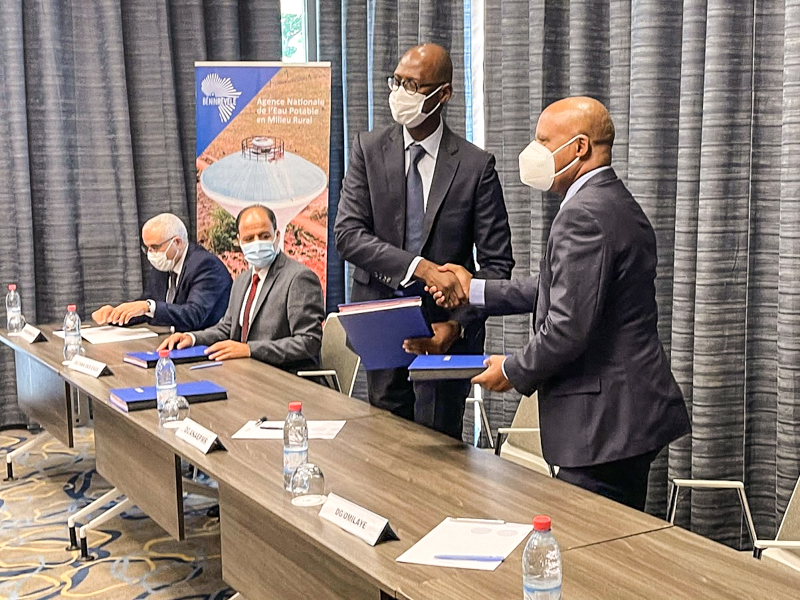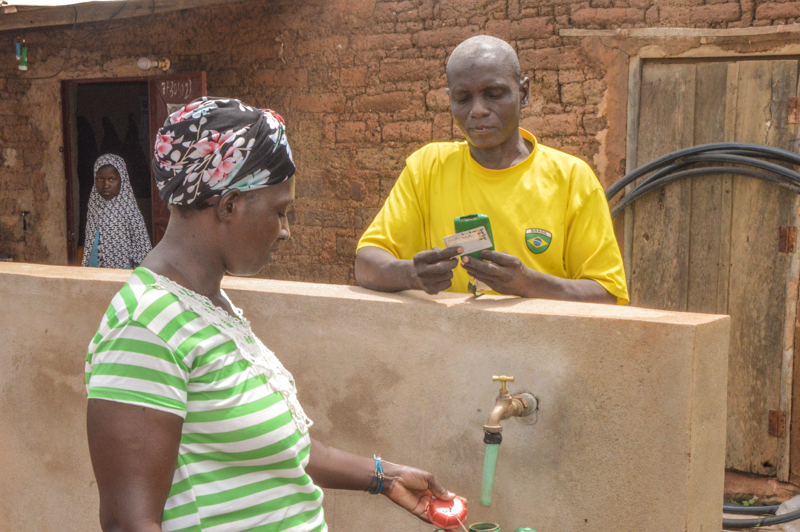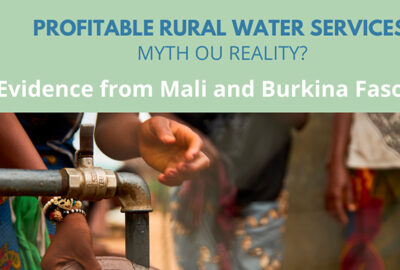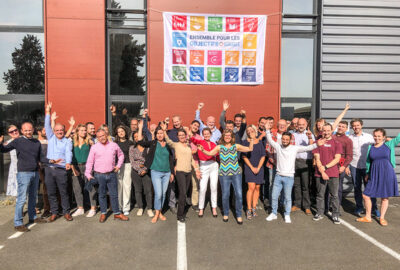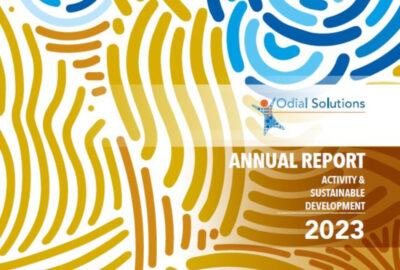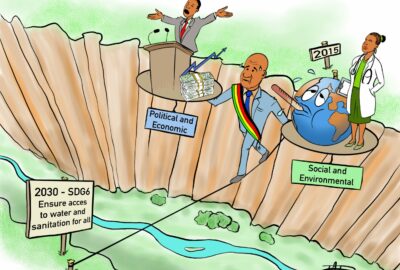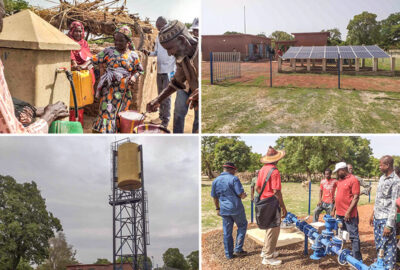Communication, Drinking water, Mali, News, Service
Mali: guaranteed and convenient access to drinking water, 7 days a week, for more than 45,000 people!
Picture caption: One of the 18 demonstrator mini solar DWS systems set up by UDUMA in Fakola (Cercle of Kolondiéba, Bougouni Region).
UDUMA MALI service quality for improved access to drinking water
UDUMA MALI (Bougouni, Mali) is offering more than 45,000 Malians access to drinking water by simply turning a tap. The Dutch Ministry of Foreign Affairs (through RVO, the Netherlands Enterprise Agency) has given the green light for the installation of 75 Improved Village Water Supply Systems (mini solar drinking-water supply (DWS) systems) in the Bougouni region. This is a milestone in the Malian company’s history.
The private operator has committed to provide its drinking water supply service to each of these 75 mini solar DWS systems, for the next 15 years. “Until now, UDUMA MALI only ran rehabilitated manual pumps. Now we have introduced these mini solar DWS systems, users benefit from (1) a long-term UDUMA service guarantee at every type of water point, and from (2) a more modern, more convenient access to water. We’re delighted to be able to offer unprecedented quality improvement,” enthuses Alinta GELING, Operations Officer at UDUMA MALI.
Switching to solar power, the cornerstone of a sustainable service
Progress demands that, within the next few years, everyone should have access to a truly reliable and sustainable water service (“By 2030, achieve universal and equitable access to safe and affordable drinking water for all” – Goal 6.1 of the 2030 AGENDA). But is this economically feasible in the short term in all rural African settings? Backed by funding from the VITOL Foundation, in spring 2021 UDUMA MALI set up 18 demonstrator mini solar DWS systems in volunteer villages equipped with manual pumps in the Bougouni region.
Originally intended to study the revenue sharing generated by manual pumps and mini solar DWS systems, this R&D project proved the main inspiration for the extensive programme co-financed by UDUMA MALI and RVO. The initial results from this full-scale test proved that a mini solar DWS system yields much higher financial contributions from users than a manual pump. “These contributions generate revenues that can cover not only the operating costs of these solar installations, but also a share of the costs of the other associated drinking water points, notably those with manual pumps,” explains Youssouf SIDIBE, Project Officer at UDUMA MALI.
Like the 18 demonstrators, the 75 mini solar DWS systems will comprise a community standpipe and a 5 m3 water tower (4 m high) topped with solar panels powering a submersible pump.
Comments are closed



